Declan Linnane took Nicholas Breakspear Catholic School from ‘inadequate’ to ‘outstanding’ with a mission to focus on inclusion. Here’s what he learnt…
When Declan Linnane left his school in London to join Nicholas Breakspear Catholic School in St Albans, he feared it was “professional suicide”.
He recalls joining in 2013. “I was told if we don’t turn the school around, they’re going to close it. The county had already started making movements to reassign the children to different schools. That’s how close it was.”
Linnane walked in on his first day to find pupils in “short skirts, no ties, trainers, litter everywhere”, and staff “blind to it, because it was just normalised”.
The school was at well below half-capacity, with fewer than 500 pupils. Its reputation locally was poor, and many parents had pulled their children out.
It was rated ‘inadequate’ just over a year after choosing to become an academy.
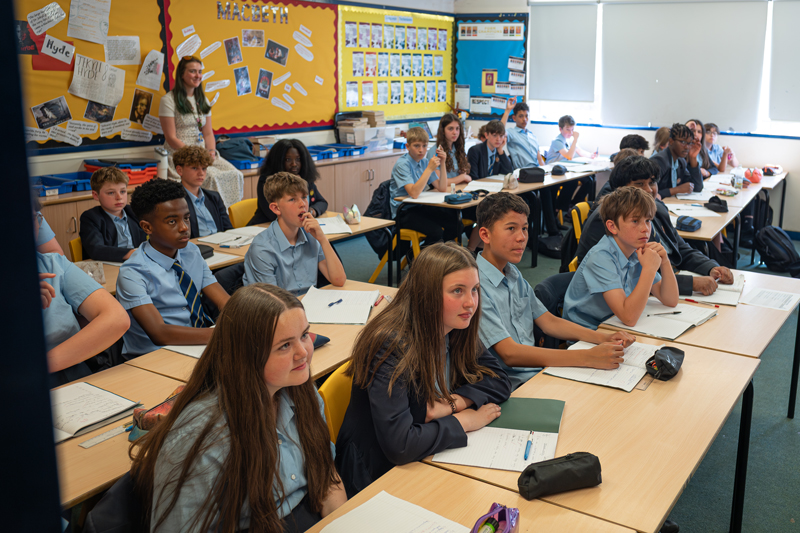
“What have I done?” Linnane thought. But 10 years on, the former sink school is now ‘outstanding’ and oversubscribed. Inspectors said pupils receive an “exemplary education”.
Linnane will be leaving NBS next year to became head of the Trinity Catholic High School, in Woodford, north London. But he spoke to Schools Week about the lessons learned from his ten-year turnaround …
‘If they look smart, people will think they’re smart’
Linnane said his philosophy focused on “strong pastoral care, firm boundaries and high expectations”.
It led to “students who had been written off beginning to thrive. Our core message became clear – at this school, every student is valued and supported, regardless of their past.
“Many schools in a similar position might have improved performance metrics by restricting admissions or filtering for high achievers,” Linnane said.
But “we chose an inclusive approach. It became a sanctuary for students facing exclusion from other schools, including those with behavioural or academic challenges. This decision was not charity but a statement of principle: that every child deserves a chance to succeed.”
There was an early crackdown on uniform. Those not following rules were hauled into the hall.

“I walked in and there must have been 300 people. I stood on the steps and said, ‘my job here is to protect your integrity. At the moment you come in not having any respect for yourself’… so I said, ‘tidy yourself up’.”
NBS remains strict on uniform today. Most pupils look fresh from a prospectus photoshoot, in blazers and ties.
As Linnane walks the corridors he greets pupils by name, asking about their week, cracking jokes, and reprimanding those with shirts untucked, whom he seems to spot out of the corner of his eye.
He describes NBS as “a strict school”, but most pupils “understand why we’re big on uniform. If they look smart, people are going to think they’re smart and they’ve got smart values, smart attitude.”
But while pupils were relatively quick to respond, Linnane had a harder time winning over some staff.
He said: “We introduced a teaching and learning briefing, where things were shared regularly. Insets had a big teacher learning focus, and once [staff] saw the results of their work there was a big buzz for me.”
But in his first year, 23 staff left.
Linnane had to “beg and borrow” teachers from other schools, but managed to find “the right staff” – those willing to “take a risk” on NBS, who “had faith in its journey”.
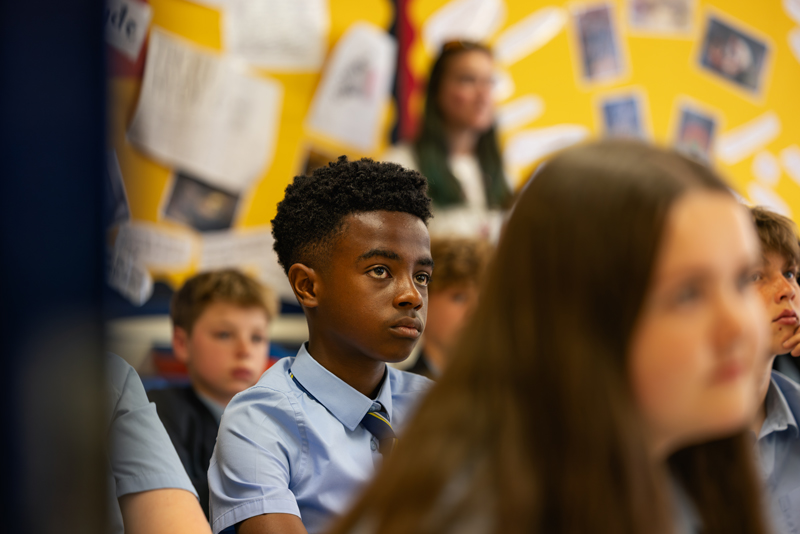
Parents were told to have “trust and faithfulness” too.
“I’d go around all the primary schools to speak to them, and sometimes no one would turn up,” Linnane recalls. “I just kept being persistent and saying ‘this is a school that’s going to change’.”
‘Rejecting the narrow grades focus’
Another key focus has been inclusion.
“The school’s guiding ethos, “Nurture, Believe, Succeed,” rejects the narrow focus on grades,” he adds.
“Instead, it prioritises holistic development, ensuring that all students feel seen, challenged, and empowered to reach their full potential.”
Linnane says this vision aligns with that of the current education secretary, Bridget Phillipson.
“Unfortunately, many schools continue to prioritise performance metrics over inclusion, subtly excluding those deemed unlikely to achieve high scores,” he says.
NBS is Catholic school, but a decade ago, in a bid to fill its roll, it welcomed pupils of all religious and secular backgrounds.
However, now the school’s popularity has improved and it is oversubscribed, Catholic families are now the lion’s share – meaning local families may not be able to attend.
“I don’t agree on our admission policy, but it’s not governed by me. It’s governed by the diocese,” says Linnane. Turning away non-Catholic families that believed in the school when it was at its lowest ebb makes him “uneasy”, he said.
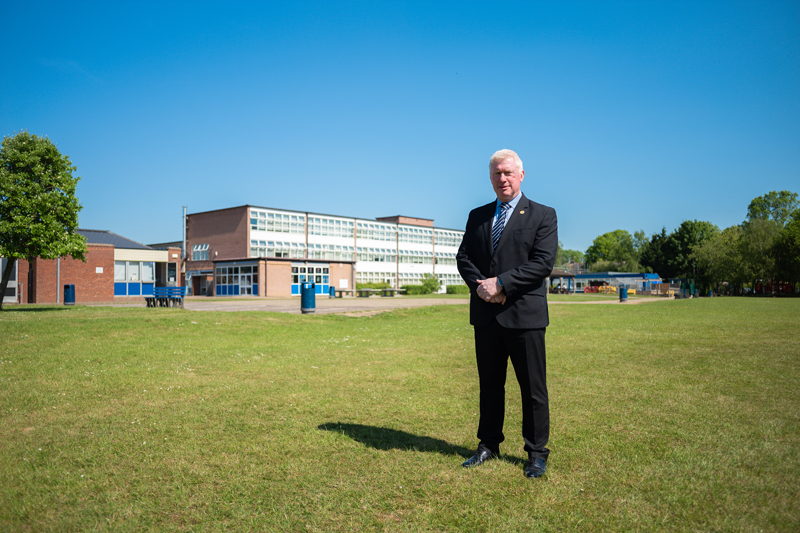
Research has suggested faith schools tend to have fewer disadvantaged pupils on their roll.
NBS has fewer poorer youngsters than other local secondaries. Just under 12 per cent of its pupils are on free school meals, below the county-wide average of just under 17 per cent in Hertfordshire.
But 3.6 per cent of pupils have an EHCP, above the 3.1 per cent national average for all secondary schools. Meanwhile 16 per cent of pupils have SEND, just below the 16.5 per cent average.
Linnane says the school is committed to “including everyone”. It has a “reputation for SEND children” and they do not “play games about selecting children”.
Ofsted’s report last year said pupils with SEND “are supported to thrive in lessons” and staff “are fully informed as to how best to help them succeed”.
“The high expectations of all pupils’ learning are the same…all pupils, including those pupils with SEND, achieve exceptionally well.”
Linnane explains how NBS staff are urged to constantly keep in mind “Alice” – a fictitious marginalised child, adding: “If we get it right for Alice, we get it right for everyone.”
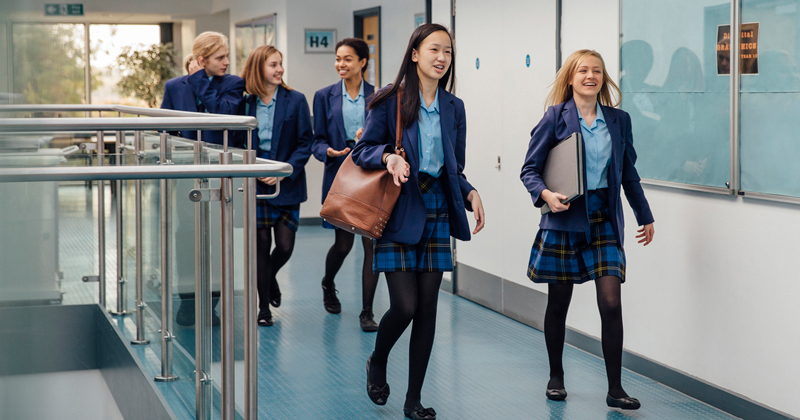
Staff are trained in the ‘stepped’ approach, which helps de-escalate situations and “keeps the whole community very nurturing”.
NBS takes pupils from almost 50 primary schools, and has a strong transition programme for new year 7s.
“We will go to every single primary school or setting, we’ll meet the child, meet their teacher, meet the SENCO, and we’ll say, ‘right, tell us about this child’.”
All pupils are interviewed by staff about their hobbies, favourite subjects and friendship group.
He recalls his own schooling. “You didn’t have anyone to fight your corner, there was no accountability for poor teaching.”
NBS’ progress 8 scores are well above average (0.75), with almost 60 per cent of pupils achieving a grade 5 or above in English and maths GCSEs, compared to a national average of around 46 per cent.
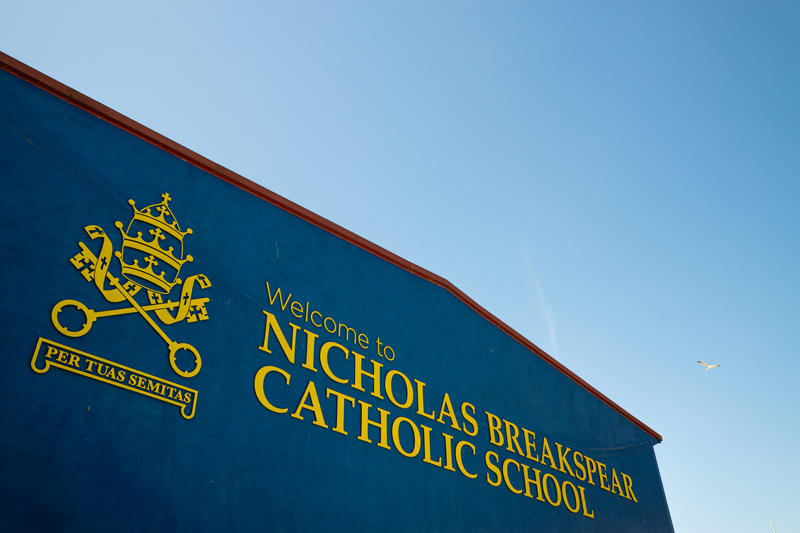
The school was rated ‘outstanding’ in January last year, after being rated ‘good’ in 2016 and ‘requires improvement’ in 2014.
Confiscating games consoles
Linnane said the school’s non-teaching pastoral team is also central to its success.
They drive attendance, parental engagement, and do everything from investigating bullying concerns and social media problems reported through the school’s anonymous reporting system, to handing out period products and school uniform.
Today, absence at NBS is 5.1 per cent – well below the national average of 8.9 per cent – while persistent absence sits at less than half the national average, at 10.5 per cent compared to 25.6 per cent.
The high standards aren’t just for pupils. Linnane says parents also “have to work hard. There’s an expectation that you turn up for parents’ evening. You turn up for events.”
If parents do not participate, the pastoral team make phone calls, send out letters.
During our visit, Linnane has two confiscated Xboxes in his office.
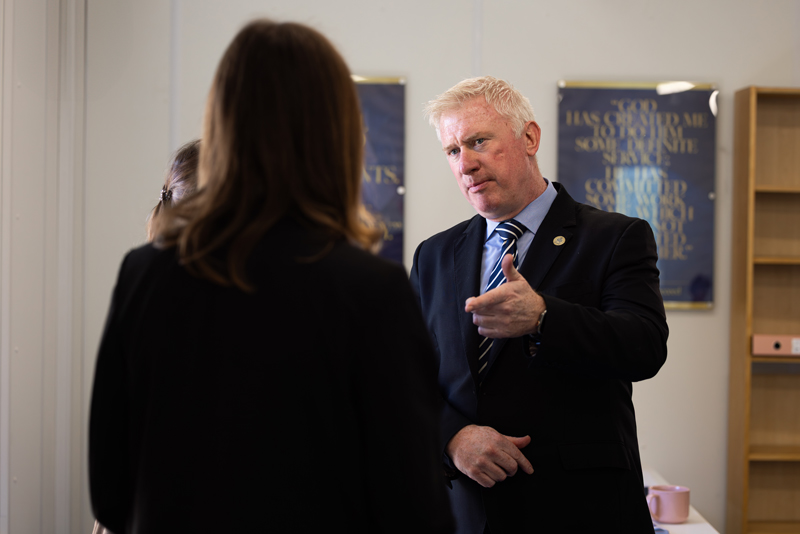
He chuckles as he recalls turning up unannounced at a pupil’s home one Friday evening, on his drive home from work.
The pupil had been “pushing boundaries at home”, and fled through the back door when Linnane arrived. The head asked his mum to get the boy’s PlayStation and said he would confiscate it until after exams.
“I put it in the boot of my car, had a cup of tea, and I drove off.” Linnane says the boy was initially “upset”, but later thanked him.
“He said ‘thank you. I get why you did it.’ He’s now gone off to do high-end mechanics. He wants to work in Formula 1.”
Nicholas Breakspear School’s ‘strong mission’
Ofsted inspectors last year found pupils were “cared for deeply by all school staff” and “show high levels of mutual care and respect for one another”.
“All pupils are unwaveringly polite, kind, confident and thoughtful,” they added.
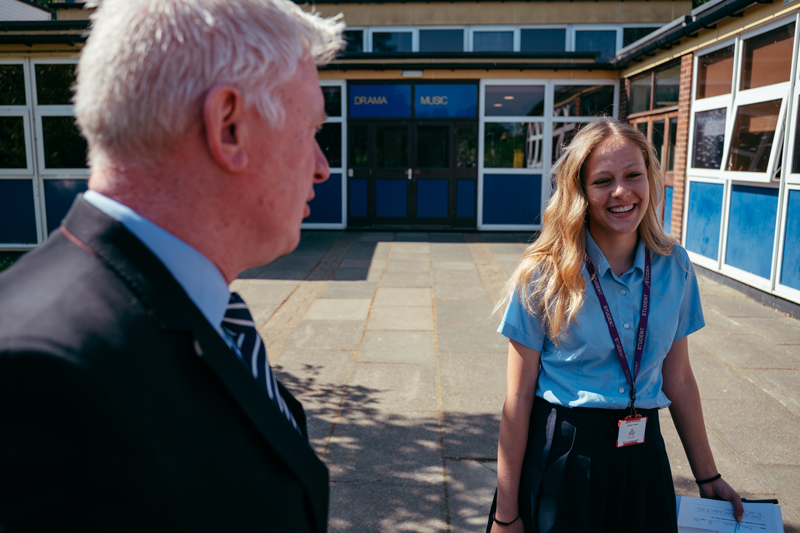
Linnane puts this down to the school’s “mission”, which is constantly drummed into pupils: “Empowered by the presence of God and each other, we nurture our unique gifts to build a better world.”
A large billboard outside the gates even asks passers-by: “What are you doing to build a better world?”
The school’s curriculum is also designed around the seven strands of Catholic Social Teaching, with every topic linked back to these principles.
As we drop into classes – geography, drama, music – pupils tell Linnane what they’re studying, and how it relates to these strands, such as the importance of caring for the environment, and the “poor and vulnerable”.
“We’re not trying to brainwash anyone,” says Linnane later. “But I think our values are quite strong. Peace, justice, truth and love. Our mission is about building this better world.”
He says NBS’ journey to ‘outstanding’ has not been one of overnight success, but of consistent “hard work. In that 10 years, we found the formula that works.”


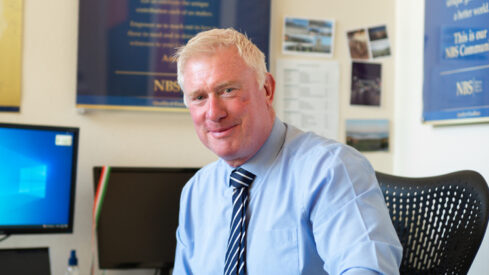




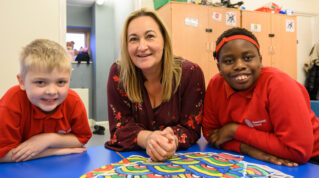
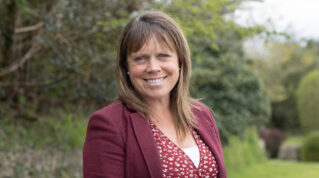
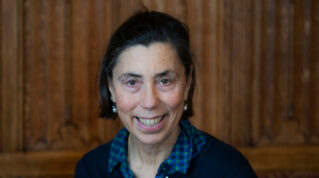
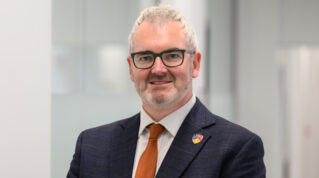
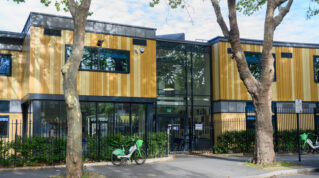


Your thoughts